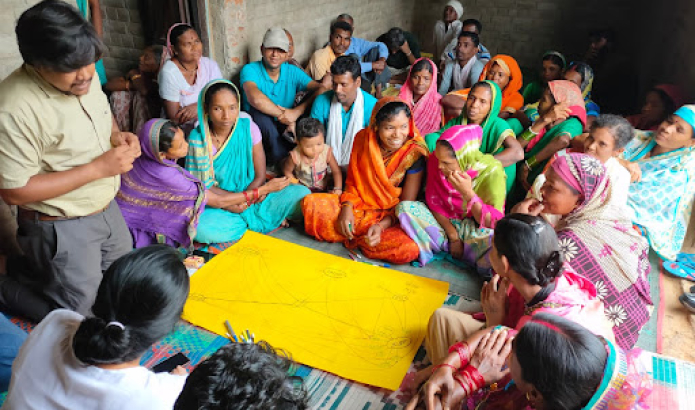How to envision the future of communities: co-created climate scenarios

Predicting future climate so that farmers know exactly how to adapt and transform their agricultural practices to maximise livelihoods. This sounds like an ideal scenario, but in reality, this is of course not easy as the climate is unpredictable and changes annually. Where one year, there can be excessive amounts of rain, and the other year can be characterised by large periods of drought. Although precise predictions are not feasible (yet), using a set of climate scenarios can function as an expectation and decision-making tool, both on a large and small scale. This blog shows the use of climate scenarios in the context of communities within the Green Transformation Project (GTP)[1] in Jharkhand and Madhya Pradesh in India.
What are climate scenarios?
Scenario development already has a long existence and widespread applications, for example in economic, policy, and environmental models. Scenarios aim to inform policy so that grounded choices can be made. In general, there are two forms of scenario development, the ones that explore futures with different alternative circumstances (including business as usual and extreme scenarios), or the ones that focus on a desired future and the path that needs to be taken to reach this future[2]. According to the IPCC[3]: ‘‘a scenario is a coherent, internally consistent and plausible description of a possible future state of the world. Scenarios are not predictions or forecasts but are alternative images without ascribed likelihoods of how the future might unfold”. In climate research, these scenarios (models) are often large-scale (global/ national) and long-term scenarios, as the global scale fits best with the interactions within the models (large-scale atmospheric and hydrological cycles). However, a key issue is how to fit these global scenarios in local community contexts.

